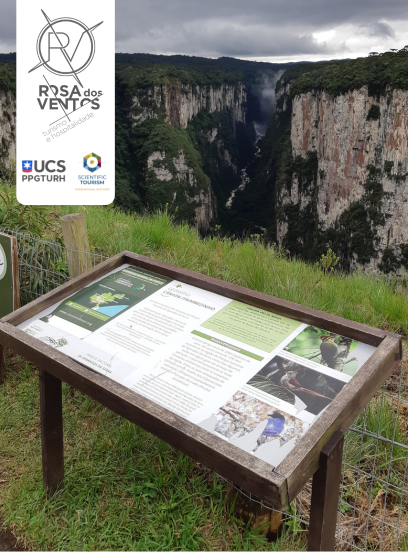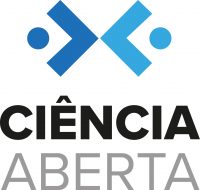AN OVERVIEW OF INTERNATIONAL PUBLICATIONS ON SCIENTIFIC TOURISM AND GEOPARKS
DOI:
https://doi.org/10.18226/21789061.v17ip170210Keywords:
Scientific Tourism, Geopark, Scientific Production, Geotourism, Knowledge Based DevelopmentAbstract
The study mapped scientific production on Scientific Tourism (ST) and Geoparks in international databases to present an overview of the studies that have dealt with these subjects together. Within this framework, it sought to verify how this approach to knowledge-based tourism has been associated with territories recognized by UNESCO for their geodiversity and land management based on sustainability. The results validated thirteen articles for analysis, of which eleven were evaluated in their full version. It identified that publications addressing this relationship are recent and growing but are still relatively few considering the number of recognized geoparks and the synergies that scientific tourism can stimulate in these territories. It also identified the occurrence of a superficial approach to tourism in the studies, with a predominance of visions that associate the conditions for tourism development almost exclusively with the existence of geo (scientific) values of the territories. In view of this, it recommends that new research considers both the integration of geo (tourism) practices with other practices located in these territories, as well as verifying the visitation and learning interests of lay audiences. Finally, it recommends conducting research in the official languages of countries with geoparks active in tourism, as well as incorporating established key terms in English to increase the visibility of studies in databases.
References
Ahmed, E. A. (2023) Assessment of the geosites and geodiversity in the prospective geopark in Siwa in the Western Desert of Egypt. International Journal of Geoheritage and Parks 11 (2023) 182–201
Bourlon, F. (2020). La ciencia como recurso para el desarrollo turístico sostenible de los Archipiélagos Patagónicos. PASOS Revista De Turismo Y Patrimonio Cultural, 18(5), 795–810.
Bourlon, F., & Mao, P. (2011). Las formas del Turismo Científico en Aysén, Chile. Gestión Turística, (15), 74–98.
Bregolin, M., & Rudzewicz, L. (2023). Vinculando Ciência e Turismo em territórios de Geoparques: o papel das comunidades no desenvolvimento do Turismo Científico. Physis Terrae - Revista Ibero-Afro-Americana De Geografia Física E Ambiente, 5 (2-3), 77–99.
Brito, L. S. M.; Perinotto, A. R. C. (2012). Difusão da Ciência no Geopark Araripe, Ceará, Brasil. Anuário do Instituto de Geociências, v. 35, n. 1, p. 42-48, 2012.
Chen, A.-Z. (2016). The establishment and development of tourism earth science and geopark, and geoheritage resources in China: Celebrating the th anniversary of Chinese academy of geological sciences. Acta Geoscientica Sinica, pp.531-565.
Conti, B. R.; Elicher, M.J.; Lavandoski, J. (2021). Revisão sistemática da literatura sobre Turismo Científico. Revista Brasileira de Pesquisa em Turismo, São Paulo, 15 (2), e-1981, maio/ago.
Costa, S.S.S.; Nascimento, M.A.L.; Da Silva, M.L.N. (2024). Geological and mining heritages in the Seridó UNESCO Global Geopark: Ediacaran to Cambrian mineral deposits revealed by historical mines in Northeast Brazil International Journal of Geoheritage and Parks 12, p. 311–332.
García, H. (2023). Identification and geomorphic characterization of fluvial knickzones in bedrock rivers from Courel Mountains Geopark. Environmental Earth Sciences (2023) 82:475.
International Scientific Tourism Network - ISTN. (2024). ¿Qué es el turismo científico?.
Li, Y.; Chen, S.; Li, Y. (2018). The evaluation and development of the geohe ritage landscapes in Dalian Jinshitan National Marine Park. International Journal of Geoheritage and Parks 6 (1), p. 63-74.
Liu, X.; Liang, Z.; Liang, L. (2017). Construction of Popular Science Tourism Evaluation Index System for Geoparks and Empirical Analysis. Journal of Landscape Research. Aug2017, Vol. 9 Issue 4, p. 109-112.
Long, C.; Song; L.; Zhu, Y. (2022). Research on Popular Science Tourism Based on SWOT-AHP Model: A Case Study of Koktokay World Geopark in China. Sustainability, 2022, 14, 8974.
Luo, Y.; He, J.; Mou, Y.; Wang, J.; Liu, T. Exploring China’s 5A global geoparks through online tourism reviews: A mining model based on machine learning approach. Tourism Management Perspectives 37 (2021) 100769
Musely. (2024). Musely.ai.
Raynal, J.P.; Defive, E.; Klee, N.; Buso, R.; Laporte, D. A Tale of Old and Young Volcanoes in Monts d'Ardèche UNESCO Global Geopark (South-Eastern France). Geoconservation Research Volcanism & Geoconservation, 2023, Volume 6, Issue 1, p. 207-232.
Ruban, D. A. (2016). Representation of geologic time in the global geopark network: A web-page study. Tourism Management Perspectives, 20, p. 204–208.
Rudzewicz, L., Bregolin, M. & Simon, A. L. H. (2024). Geoparques do Rio Grande do Sul: territórios de ciência, educação e turismo. In: Anais do II Simpósio Internacional de Turismo Científico: o Turismo Científico como estratégia para a popularização da ciência. Rio de Janeiro: Unirio.
United Nations Educational, Scientific and Cultural – UNESCO (2024). Geotourism for Unesco Global Geoparks: A Toolkit for Developing and Managing Tourism. Latin America and the Caribbean & the Arab States. Paris, France.
United Nations Educational, Scientific and Cultural – UNESCO (2025). Unesco Global Geoparks.
Wang; M.; Tan, K.; Li, Y.; Xie, Y.; Xiao, W.; Xu, Y.; Tian, Y. (2023) Study on the Sustainable Development of Popular Science Tourism Based on the SWOT Analysis for the Xiangxi UNESCO Global Geopark. Sustainability, 2023, 15, 122.
Yuezheng, L.; Shiyan, C.; Yingying, L. (2018). The evaluation and development of the geoheritage landscapes in Dalian Jinshitan National Marine Park. International Journal of Geoheritage and Parks. 2018, 6(1): 63-74.
Zhao, Z.; Li, P.; Yang, Y.; Wu, X; Guo, Z. (2018). Study On The Ecological Health Evaluation Of A Geopark Based On Dpsir Conceptual Model Illustrated By The Qianjiang Xiaonanhai National Geopark Of China. Applied Ecology and Environmental Research 16(4):3839-3859.
Downloads
Published
How to Cite
Issue
Section
License
Autores que publicam nesta revista concordam com os seguintes termos:
Os Autores mantém os direitos autorais e concedem à revista o direito de primeira publicação, com o trabalho simultaneamente licenciado sob a Creative Commons Attribution License que permitindo o compartilhamento do trabalho com reconhecimento da autoria do trabalho e publicação inicial nesta revista.
Autores têm autorização para assumir contratos adicionais separadamente, para distribuição não-exclusiva da versão do trabalho publicada nesta revista (ex.: publicar em repositório institucional ou como capítulo de livro), com reconhecimento de autoria e publicação inicial nesta revista.
Autores têm permissão e são estimulados a publicar e distribuir seu trabalho online (ex.: em repositórios institucionais ou na sua página pessoal) a qualquer ponto antes ou durante o processo editorial, já que isso pode gerar alterações produtivas, bem como aumentar o impacto e a citação do trabalho publicado (Veja O Efeito do Acesso Livre).








